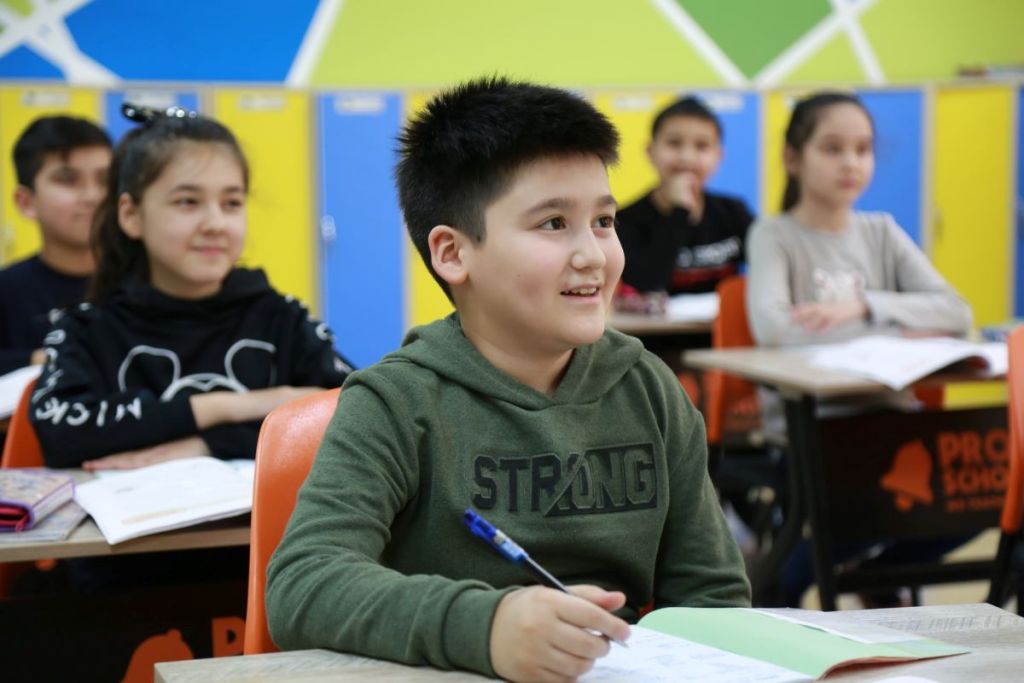Are you worried about your child’s school performance when making the jump from elementary to middle school? Do you wonder what you can do to make this transition as easy as possible? Fortunately, we’ve brought you some insight into study skills for middle schoolers from experts in the educational field. You might even be surprised about a few of the simple steps that’ll help your student succeed and gain more confidence.

How do you teach study skills for middle schoolers?
While working in partnership and regular communication with the teachers, the acquisition of study skills can start at home or at least become an extension of what’s taught at school. Fortunately, the process of learning study skills for middle schoolers resembles more of a marathon as opposed to a race. It won’t happen overnight, and there’s plenty of time to allow the process to unfold.
To begin with, you can encourage your child to reflect on the day and to reflect on homework time. Education and K-12 expert Nadine Levitt explains the importance of reflection in the learning process:
Remember, we don’t learn from doing, we learn from reflecting on what we did. Learning requires you to make sense of things, so create regular moments of reflection, and try to think about how this new learning might apply in your life.
For instance, you can ask more precise questions about school as opposed to “How was school today?” You can inquire about a more specific detail regarding a class. As Greg Freebury, teacher and founder of Think and Evolve Academy, recommends,
So instead of asking, “What did you learn at school today?” (which will inevitably lead to the response of “Nothing” or “I don’t know”), try getting specific. Instead, ask, “What is one thing you learned in math class today?” or “What’s one interesting fact that your history teacher said today?”
As Freebury notes, this sort of reflective conversation allows your children to recall and interact with the material that makes for a great review. Furthermore, this practice allows kids to think about how they could’ve approached a test or project differently. This is just the beginning when it comes to learning study skills by talking about what works and what doesn’t. From there, you can help your middle schooler to learn organization along with time and information management–one step at a time.

Which subjects and skills do middle schoolers struggle with?
Considering the many developmental changes that a middle schooler goes through, organization poses one of the biggest challenges. At this point in their school career, they’re dealing with multiple classes, multiple teachers (each with their own instructional style), and therefore, many more binders or notebooks. You can alleviate the confusion by helping your middle schooler with some guidance on labeling dividers and front covers of notebooks or three-ring binders. Also, Lisa Spiransky offers some advice about organization:
Good study habits start with being organized. We like color folders to separate assignments or research for an essay by subject or by priority. Things in the red folder need to happen today! You can also color code computer desktop folders in the same way.
In relation to organization, students in this age group find prioritizing tasks and managing their time to be difficult. Thus, writing project due dates and testing dates on a calendar serves as an excellent reminder. Also, as recommended by Freebury, having a designated time and space for homework does wonders for limiting distractions and helping your child to stay motivated:
When creating a homework ritual, the environment is very important. Make sure to have a space specifically designated to do homework, such as a particular room in the house or a homework desk. Just like your brain associates the kitchen with eating or the bed with sleeping, so too will your brain start to associate the desk with doing homework. And finally, if possible, make it so the homework ritual happens at the same time every day. This will train the brain to expect the transition to homework mode.
Another change that should occur in the tween and early teen years is a more profound focus on the “growth mindset,” which is important to learning. As school subjects become increasingly abstract, the more difficult it is to retain; much less apply the material. As Levitt mentions, “Knowing that effort will help you develop, and it will not be an overnight success story!”

Good study habits that middle schoolers can apply to all classes
What are some productive study skills for middle schoolers to apply to all subjects? Sajan Devshi, the founder of Learn Dojo, offers some pointers:
Chunking Information
“Chunking” is an effective memory technique that allows people to remember large pieces of information by “chunking” it together. It’s been utilized most effectively where you need to remember countless amounts of essays. The way this works is you break down big pieces of information into keywords that help trigger your memory. When you encounter those keywords, you’re better able to recall the information that’s associated with them.
Extra tutoring
Sometimes, a child struggles with a new skill because they haven’t learned the fundamental elements of that subject, or they may need an intensive review. Thus, a tutor can help identify the opportunities for improvement and then provide support throughout the year.
Set a revision timetable across all your subjects
You can create a revision timetable broken down throughout the academic year and allocate revision slots for all your different subjects. This can be broken down between the topics you need to learn within your subjects, too. This will help ensure that your child stays on track and covering everything he or she needs to know.
Thus, by gradually putting some of these study skills for middle schoolers into practice, your child will achieve a smooth transition from elementary to the next level with much success. Time, patience, and consistency are keys to building good habits, and your child will benefit from the guidance that comes from a solid team of you and your kid’s teachers.



